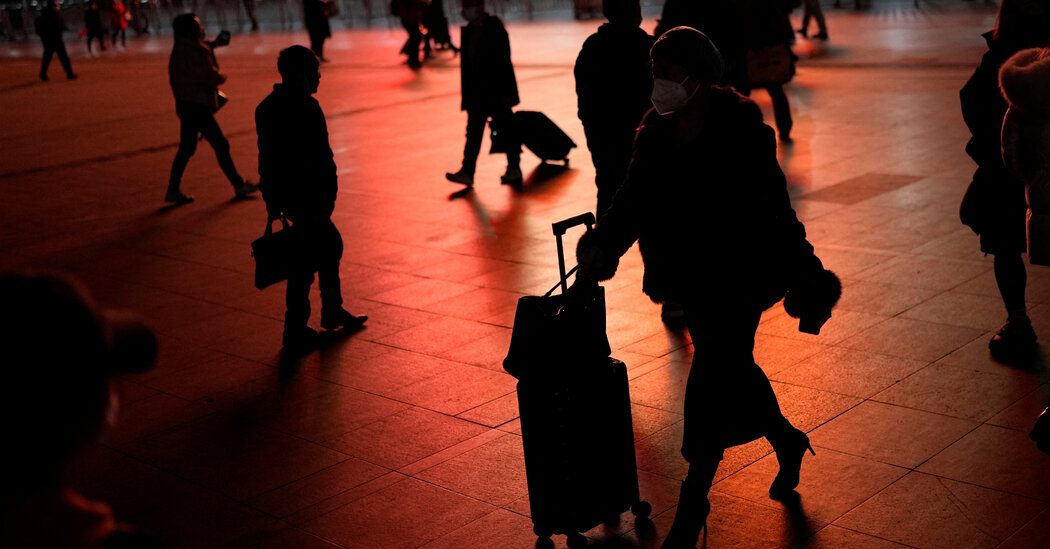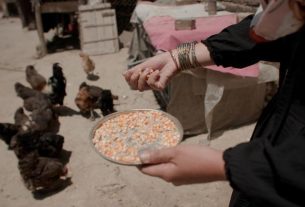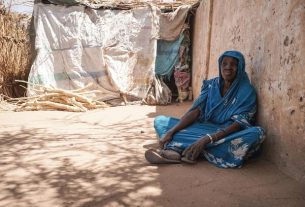|
Getting your Trinity Audio player ready...
|
China’s ‘meaningless’ Covid data
Despite repeated assurances that the country’s rollback of restrictions is under control, China has no clear picture of its Covid-19 infections.
Even the most basic question of how many people are infected is hard to answer: China has relaxed mass testing requirements and made reporting at-home test results voluntary. Yesterday, the government said it would stop reporting asymptomatic infections, which made up most of the positive test results in the past.
The country’s official data around Covid may be hazy, but there’s strong anecdotal evidence of a surging number of cases. Hospitals, too, are crowded.
The lack of reliable information could have major economic implications. Foreign businesses and investors don’t know how long it will take for China’s economy to recover. And shoppers are still hesitant to re-enter stores and restaurants after years of enforced lockdowns.
From Opinion: Abandoning “zero Covid” is a chance for President Xi Jinping to pivot from the perils of one-man rule, Minxin Pei argues.
Other China news: Beijing will withdraw six diplomats from the U.K. following a British police inquiry into a violent clash at a demonstration at the Chinese Consulate in Manchester.
France beats Morocco, 2-0
France beat Morocco just minutes before we sent out this newsletter. The team will play Argentina on Sunday in the World Cup final.
The first half of the game ended with France in the lead, 1-0. Morocco held firm, avoiding a complete disaster. Its magical run has elated fans: It was the first Arab or African team to reach the semifinals. France surged in the second half, when it scored another goal.
Understand the Situation in China
Beijing’s restrictive “zero Covid” policy pummeled China’s economy and set off mass protests that were a rare challenge to the Communist leadership.
The match was always about more than sports. France ran a protectorate in Morocco from 1912 to 1956, when Morocco gained independence. Many Moroccans in France still face racism and other forms of discrimination, and diplomatic ties remain complex.
Now, despite its loss, Morocco has become the champion of the world’s colonized against the world’s colonizers.
Details: Morocco’s team had the most nonnative-born players in the World Cup. Fourteen grew up in Europe yet chose to play for Morocco. Some said they made the choice because of the bigotry they had faced in Europe.
From Opinion:
Under Josaia Voreqe Bainimarama, the prime minister, Fiji has grown closer to China. His challenger, Sitiveni Rabuka, recently indicated that he would prefer closer ties to Australia, a longtime ally of Fiji that is also trying to strengthen its influence in the Pacific.
The contest could become volatile. Both men have been involved in coups: Bainimarama led Fiji’s last one, in 2006; Rabuka its first, in 1987. It remains unclear if Bainimarama would honor the results, were he to lose. Experts said that he could seek the help of Fiji’s military, which is constitutionally permitted to intervene if it sees fit.
Analysis: Turnout was low. “With the two likely contenders for prime minister being former coup leaders, it may be that people think, ‘Is it really democracy?’” an expert said.
In other Pacific news: Australia signed a new security deal with Vanuatu, The Associated Press reports.
THE LATEST NEWS
Asia Pacific
In 2018, Kim Jong-un, North Korea’s leader, gave two dogs to South Korea, then led by Moon Jae-in, as a symbol of peace.
Four years later, South Korea is in political gridlock and the period of rapprochement on the Korean Peninsula is over. And the two pups, orphaned after a heated dispute over who would pay for their care, ended up in a zoo.
PROFILE
A Russian artist dissents
Vladimir Ovchinnikov, 84, has long painted pastoral scenes across the walls of Borovsk, his provincial hometown, near Moscow.
Now, his political art is attracting attention. At a time when dissent is being crushed across Russia, Ovchinnikov has been painting murals protesting the invasion of Ukraine. His own history drove him to denounce violence and war — he did not meet his father until age 11 because his father had spent 10 years in a gulag, and his grandfather and uncle were killed by the state.
His work has earned him a reputation as the “Banksy of Borovsk” — which, he said, he does not appreciate. Unlike Banksy, the mysterious street artist based in Britain, Ovchinnikov works in the open. He thinks that his age and his family history offer him a modicum of protection. Still, he has been fined, questioned and pelted with snowballs.
“I draw doves, they paint over them,” he said.
Banksy: Last month, the artist painted seven murals in and around Kyiv. An activist incited controversy when he removed one of Banksy’s works, saying he intended to auction it off and donate the proceeds to Ukraine’s army.



